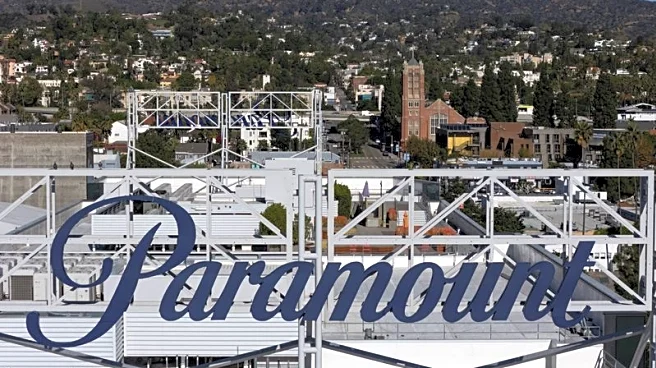Rapid Read • 9 min read
Wall Street is experiencing heightened anxiety as recession warnings have emerged following the release of recent jobs data. Futures tied to the Dow Jones Industrial Average showed a reversal, with an increase of 114 points, or 0.26%. Similarly, S&P 500 and Nasdaq futures rose by 0.34% and 0.38%, respectively. The yield on the 10-year Treasury note increased by 3.3 basis points to 4.253%, while the U.S. dollar weakened against the euro and yen. Gold prices saw a slight increase, whereas U.S. oil prices and Brent crude experienced minor declines. The economic outlook has been clouded by President Trump's tariffs, which have been perceived as a contributing factor to the economy's fragility. Recent data indicates that job gains have averaged only 35,000 over the past three months, coupled with declines in consumer spending, housing, and manufacturing. Economists, including Mark Zandi from Moody's Analytics, have expressed concerns about the economy being on the brink of a recession. Additionally, the firing of Erika McEntarfer, head of the Bureau of Labor Statistics, has raised questions about the potential politicization of economic data.
AD
The current economic situation poses significant implications for various stakeholders, including investors, businesses, and policymakers. The potential recession could lead to decreased consumer confidence and spending, impacting industries reliant on consumer demand. The tariffs imposed by President Trump have added uncertainty to international trade relations, potentially affecting U.S. exports and imports. The financial markets are closely monitoring these developments, as they could influence investment strategies and economic forecasts. The politicization of economic data could undermine trust in official statistics, complicating policy decisions. As the economy faces these challenges, businesses may need to adjust their strategies to navigate potential downturns, while policymakers might consider measures to stimulate growth and stabilize the economy.
In the coming days, the focus will be on the implementation of new tariffs, which are set to take effect on Thursday, affecting trading partners like Canada and Switzerland. The U.S. Trade Representative has indicated that tariff rates are unlikely to change, despite previous delays. Economic reports, including the trade deficit for June and second-quarter productivity, will provide further insights into the impact of tariffs and the overall economic health. Additionally, the earnings season continues, with major companies like Palantir Technologies, Advanced Micro Devices, Caterpillar, Disney, and McDonald's set to release their quarterly reports. These earnings will be scrutinized for indications of how businesses are coping with the current economic environment.
The broader implications of the current economic situation extend beyond immediate market reactions. The ongoing trade tensions and potential recession could lead to long-term shifts in global supply chains and trade policies. Businesses may seek to diversify their operations to mitigate risks associated with tariffs and economic volatility. The potential recession could also prompt discussions on fiscal and monetary policy adjustments to support economic recovery. Furthermore, the politicization of economic data could have lasting effects on public trust in government institutions and the credibility of economic indicators.
AD
More Stories You Might Enjoy












